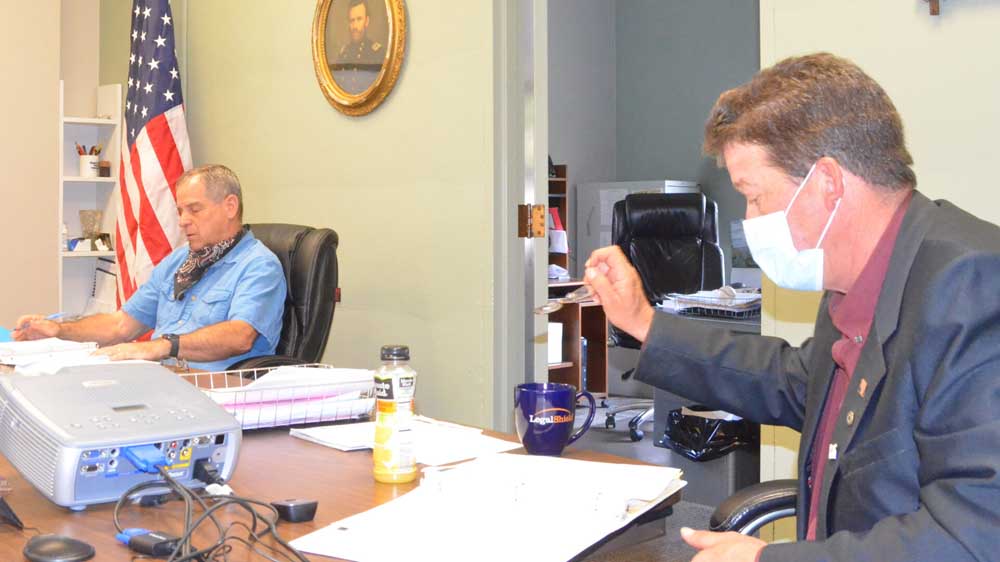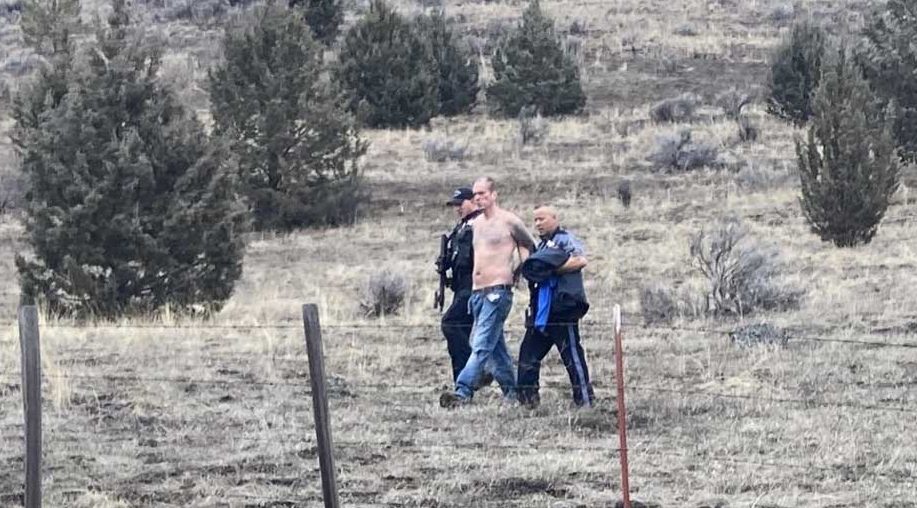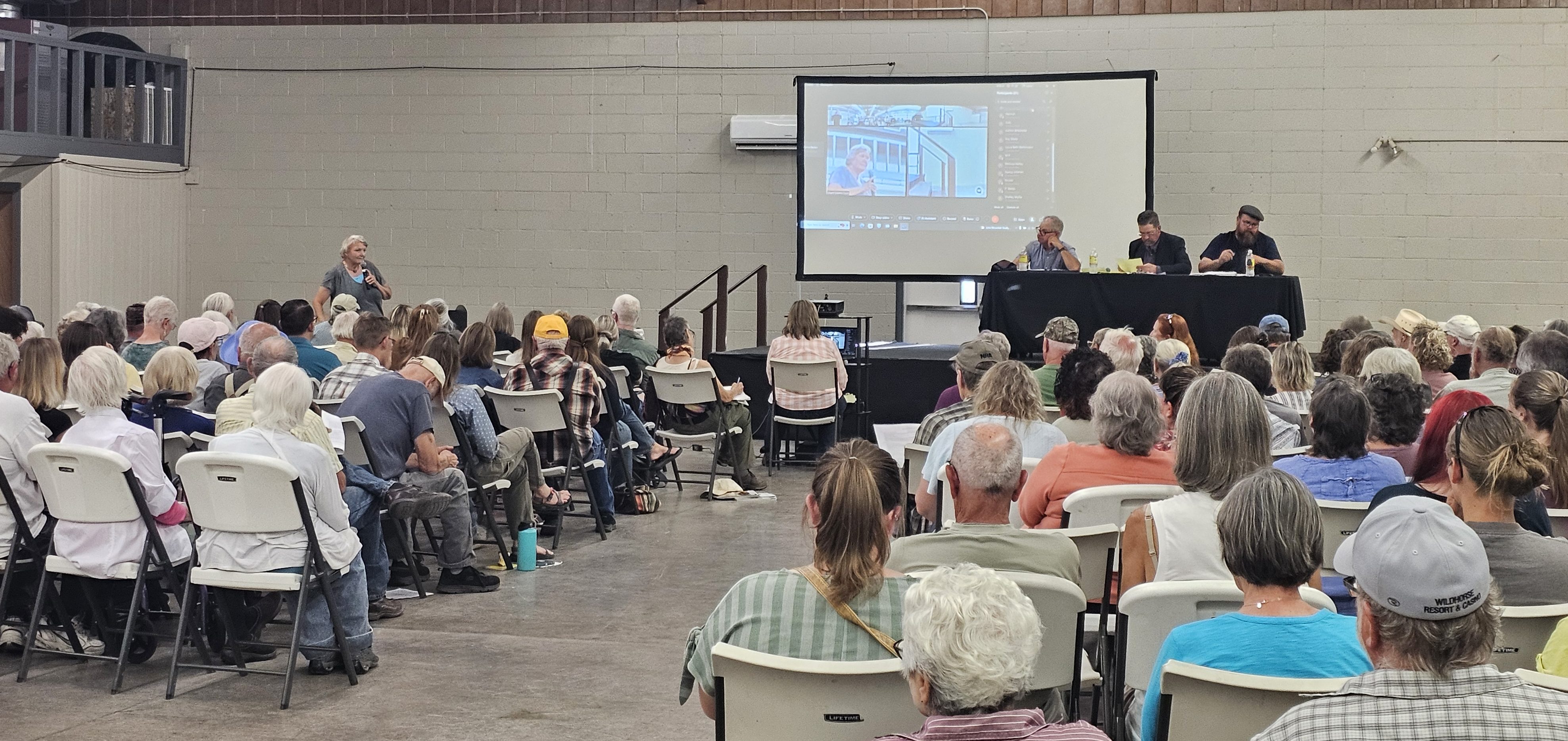County to pursue 3% marijuana tax
Published 12:00 pm Tuesday, September 1, 2020

- Grant County Judge Scott Myers, left, and County Commissioner Jim Hamsher during a session of Grant County Court earlier this month. Both are in favor of a tax on marijuana purchases.
Grant County voters will decide whether marijuana users should pay a 3% tax on recreational marijuana products in November.
Trending
After passing an emergency ordinance in 2018 to tax pot sales, Grant County officials returned $5,000 last year to Rocky Mountain Dispensary, the county’s sole marijuana retailer, because state law requires a pot tax to go to the voters during a statewide general election.
In a 2019 press release, District Attorney Jim Carpenter said that “scrutiny by the Blue Mountain Eagle brought the issue to light, causing a reconsideration of the legality of the ordinance.”
Carpenter said Rocky Mountain Dispensary had been collecting a recreational marijuana tax from its customers during the last quarter of 2018.
Trending
“The retailer, in good faith, thought there was a tax and was desirous of giving back to the community per the earlier campaign to allow recreational marijuana sales within the county,” Carpenter said.
The county, said Carpenter, needed an ordinance to receive the taxes, and with the year coming to a close, they were running out of time, so they passed the ordinance.
The problem was that the ordinance did not refer the tax measure to voters for approval, as required by state law.
Haley Olson of Rocky Mountain Dispensary said she estimates that the tax would generate over $100,000 in revenue annually.
“It’d be really substantial, she said. “I mean, that’s a significant amount of money for a community this small.”
Meanwhile, Olson said the dispensary has voluntarily held the money back and donated to various community programs, from 4-H to the wrestling team.
“I have a huge chalk wall in my office, that is from floor to ceiling,” she said. “And I just donate to all kinds of stuff. We get to choose where it goes.”
She said the only organization that has refused a donation has been the Grant County Sheriff’s Office Search and Rescue.
County Judge Scott Myers said what he likes about the pot tax is that the only people who will be taxed are those purchasing marijuana products.
“It’s a user tax,” he said. “So no one else is obligated to pay any of that tax. Only particular people pay it. No one will ever have to pay a pot tax here locally at least for now unless they’re buying products.”
County Commissioner Jim Hamsher said he supports the tax and said he had not heard any opposition to the ballot measure. He said he would like to see the money go to drug and alcohol prevention programs in the county.
“There are quite a few worthwhile prevention programs that go on in the county, and the funds would help some of those programs,” he said.
Olson said the dispensary’s business is thriving and that she supports the ballot measure. She said the tax revenue could help the county.
“They (county) could definitely use this 3%,” she said. “I think it’s great. I think it’s terrible that it took so long for them to do it, because retroactively they’ve missed out on $100,000 at least and that’s unfortunate for them, but if they put it on the ballot and they are successful, then I have no issues with it at all.”
Olson said she is unsure voters will pass the measure.
“This area doesn’t favor tax hikes,” she said. “But even if they don’t end up with their 3% (tax) we’ll still donate, because then we can still choose where it’s going.”
“It’s a user tax. So no one else is obligated to pay any of that tax. Only particular people pay it. No one will ever have to pay a pot tax here locally at least for now unless they’re buying products.”
—Scott Myers, Grant County judge









